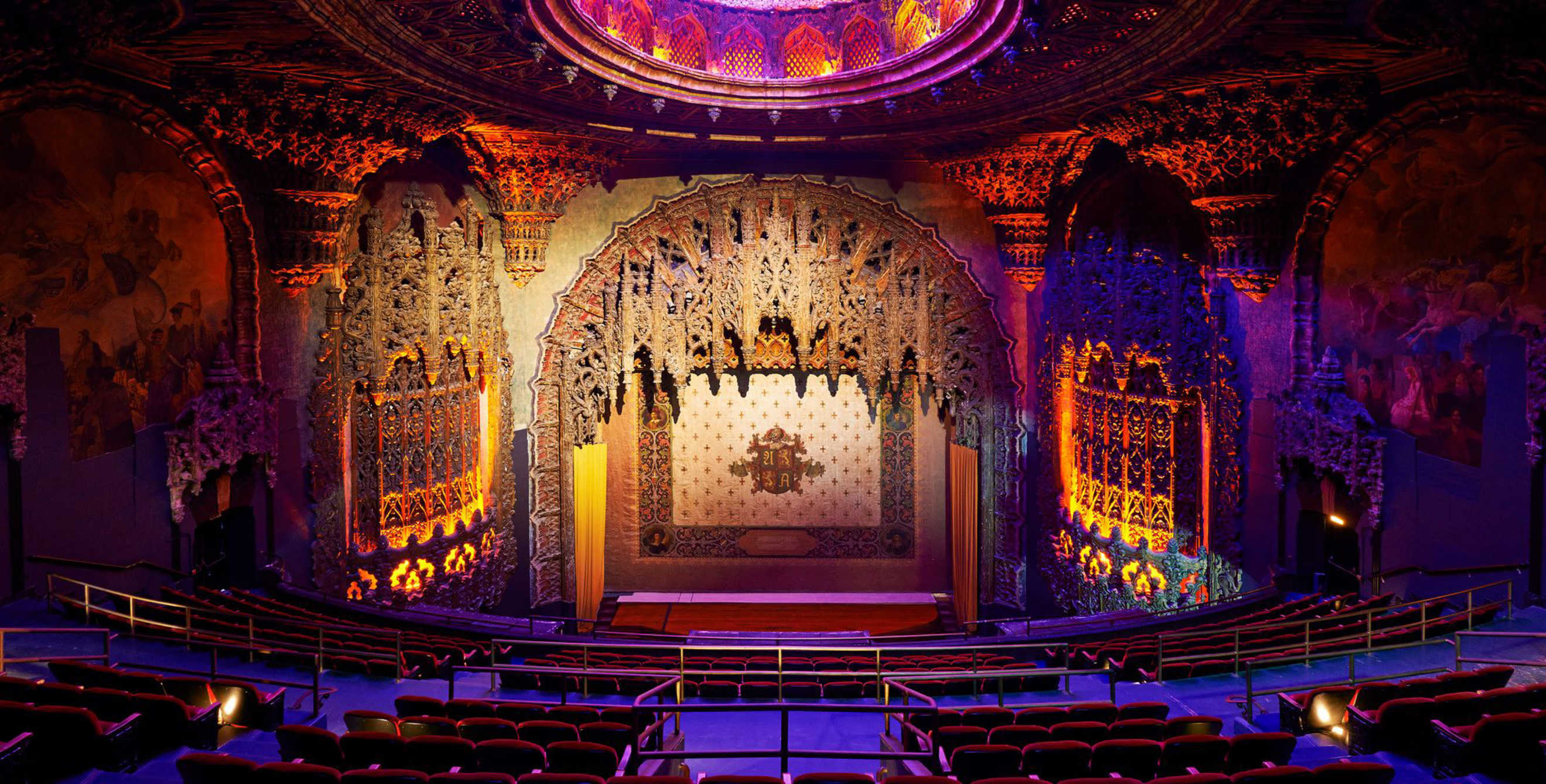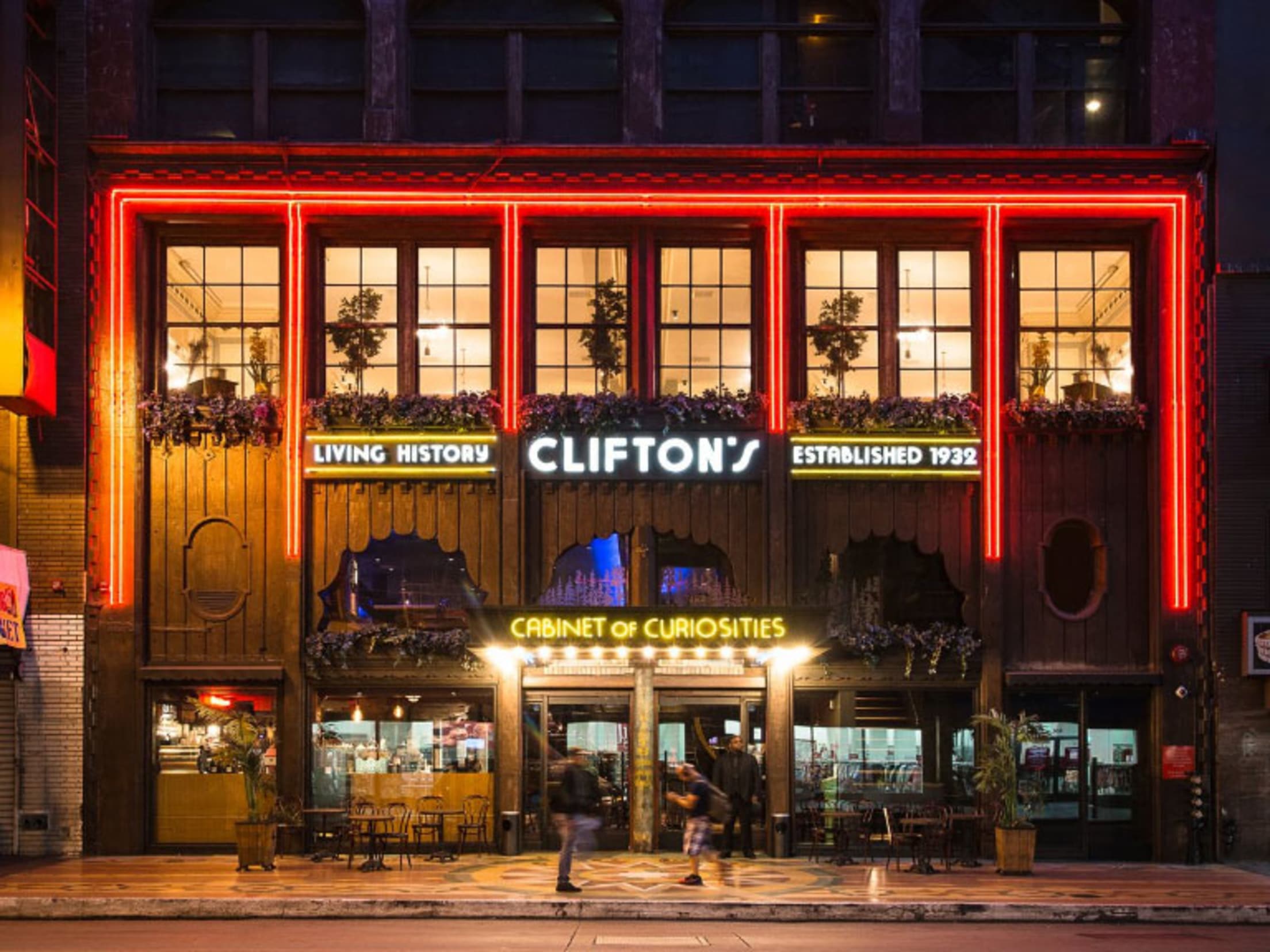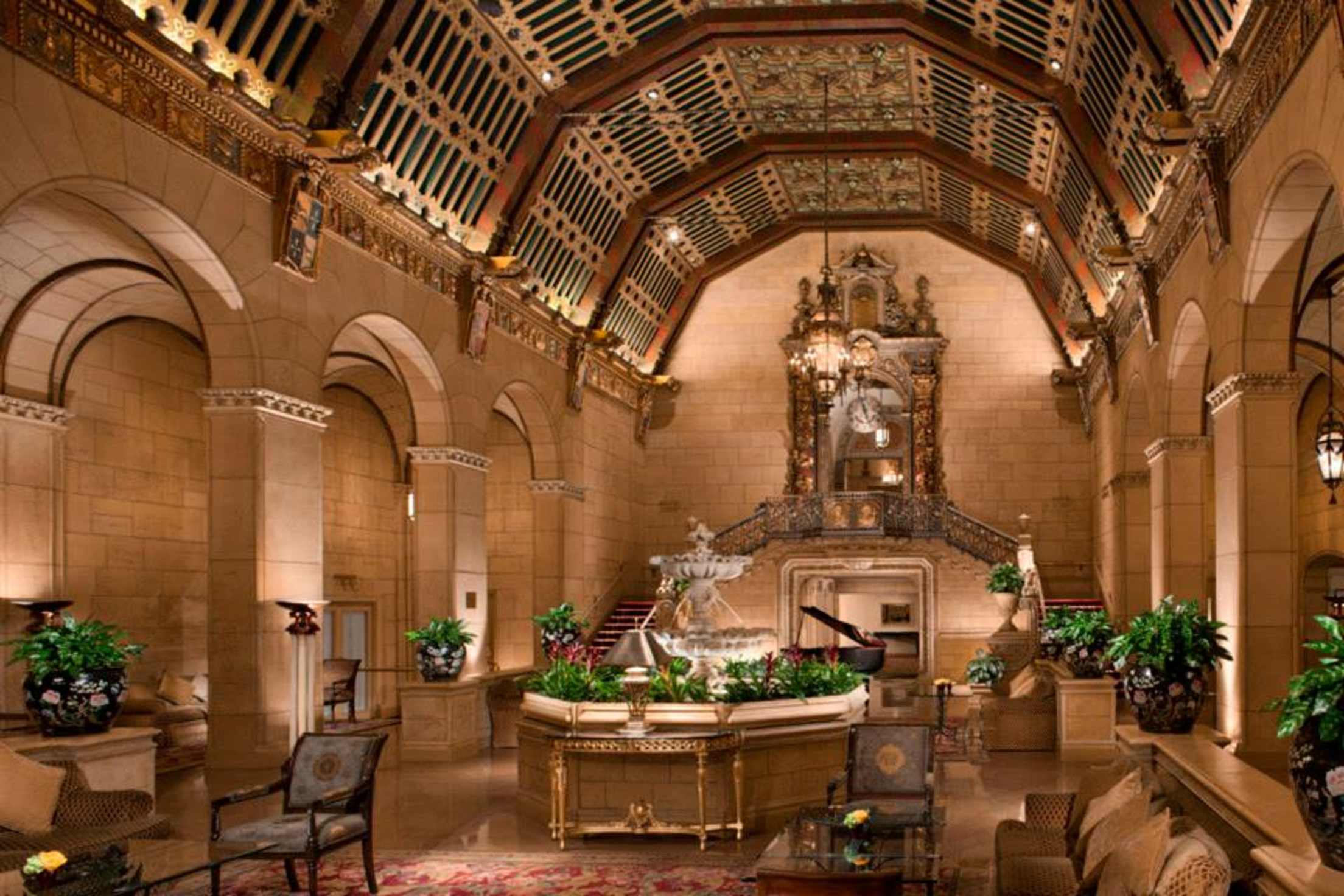
9 Revitalized Classic Hollywood Hangouts
Get a taste of Hollywood’s Golden Age at these classic, recently-updated bars, theaters, and hotels.

No matter how many Korean taco joints or glass high-rise hotels spread across the city, L.A. never turns its back on the Golden Age institutions that keep Hollywood feeling like Hollywood. Over the past several years, many of these landmarks have been restored and, in some cases, brought back from the brink of death. Because in L.A., when old age sets in, you don’t close up shop, you just get a facelift.
Revitalized Hollywood Theaters
The Theatre at Ace Hotel
Opened in 1927 by the original United Artists—Mary Pickford, Douglas Fairbanks, Charlie Chaplin, and D.W. Griffith—this ornate Spanish Gothic cinema was considered top of the line in its day. Flashy interiors aside, moviegoers were also treated to air-conditioned screenings, a rarity at the time. The building was scooped up by Ace Hotels and given the most delicate remodel, leaving behind just the right amount of patina. Today, the theatre serves as a music venue and cinema.
The Egyptian Theatre
On October 18, 1922, Douglas Fairbanks’ Robin Hood was introduced at Sid Grauman’s Egyptian Theatre in what was the very first Hollywood premiere. While the over-the-top Egyptian Revival theater is not quite as glamorous as it was in its heyday, it’s still one of the best venues in the valley to catch a classic movie. A recent update to its projection equipment allows the theater to screen original nitrate-based films from the ‘20s through the early ‘50s, and you can still catch special screenings of films introduced in person by some of Hollywood’s biggest names.
Grauman’s Chinese Theatre
In 1927, after the success of the Egyptian, Sid Grauman opened the Chinese Theatre across the street. The theatre was updated in 2013 to house one of the largest screens in North America, but it’s the stars that line the sidewalk out front that draw the biggest crowds most days. After taking your picture with the Spider Man impersonator and Frank Sinatra’s footprints, catch the latest release or sign up for a tour of the theater to get a taste of what it was like in Hollywood’s Golden Age.

Clifton’s Cafeteria underwent five years of renovations before reopening with much of its previous personality and decor intact.
Classic Los Angeles Restaurants
Clifton’s Cafeteria
After nearly five years of stop-and-go renovations, Clifton's Cafeteria re-opened in 2015 to sighs of relief from longtime patrons. Aside from minor tweaks, the forest themed interiors remain as they’ve been since 1931. Tables are dwarfed by towering redwoods, waterfalls, and glass encased bison. If anything has changed here, it’s the food (and, of course, the prices), but don’t worry, meatloaf and Jell-O are still on the menu—they’ve just been gussied up a little.
Tam O’ Shanter
Built in part by movie studio carpenters, this elfin Tudor cottage on the edge of Los Angeles’ Atwater Village is one of the city’s oldest restaurants. Since 1922, Tam O’ Shanter has been serving up Scottish pub meals to locals and those in the business—including Walt Disney and his illustrators. (Disney was such a fan that he modeled the dwarves’ cottage in Snow White after Tam O’ Shanter.) While the inside of the bar retains its original highland pub charm, the former outdoor dining patio was reconstructed this year after a 70-year absence.
Cassell’s Hamburgers
Resist the urge to line up at In-N-Out and instead hit up this classic L.A. lunch counter. The original Cassell’s opened in 1948 in what is now Koreatown and was considered by many to be L.A.’s best burger. After the death of owner Al Cassell in 2012, the business faltered, but it was quickly snatched up and reopened in 2015. While the location is different, Al Cassell’s recipes are still used and the burgers continue to be made with all of the original equipment, from the grinder to the crossfire broiler. 3600 W 6th St., Koreatown
H.M.S. Bounty
Wealthy socialist Gaylord Wilshire opened his namesake apartment building, the Gaylord, in 1924, and its first floor restaurant has been serving Angelenos ever since. While the name—and decor—has changed throughout the decades, the H.M.S. Bounty retains its personality from the last reimagining in 1962. To this day, the lights are low and the drinks are cheap in this nautical dive. Paintings of the famously mutinied H.M.S. Bounty ship hang at a tilt above the red leather banquettes, which are marked with the names of the famous people who sat there before you.

The Biltmore played host to some of the earliest Academy Awards ceremonies.
Rejuvenated Old Hollywood Hotels
Millennium Biltmore Hotel
An architectural hodge podge of Beaux Arts and Renaissance Revival, this grand downtown hotel was home to some of the earliest Academy Awards ceremonies, from the 1920s through the ‘40s. If the Biltmore interiors look at all familiar, chances are you’ve seen them before in film and television. In fact, the Biltmore is one of L.A.’s most filmed locations, appearing in Pretty in Pink, Ghostbusters, Cruel Intentions, Dynasty, Independence Day, and Mad Men, to name a few. After a failed attempt to modernize the decor in the 1970s, the hotel received a much-needed makeunder to bring it back in line with its architecture and history. Rooms were upgraded yet again last year, swapping out the banana yellow palette for sleek deco gray.
Hotel Normandie
The area around Hotel Normandie is certainly having a moment, much like it did in the 1920s when the hotel first opened its doors. While the Wilshire area had fallen out of fashion and the Normandie closed its doors in 2011, recent renewed interest in the Koreatown neighborhood brought a change in owners and a $5 million dollar remodel for the hotel. The Normandie reopened in 2015 with many of the features unique to the building brought back to their former glory, including the lobby’s grand fireplace, the brick exterior that hadn’t seen sunlight for decades, and the rooftop’s neon sign. The careful restoration of its Renaissance Revival exterior and original Spanish Revival interior, including hand-painted decorations that had been painted and plastered over, earned landmark status for the hotel. 605 Normandie Ave., Koreatown